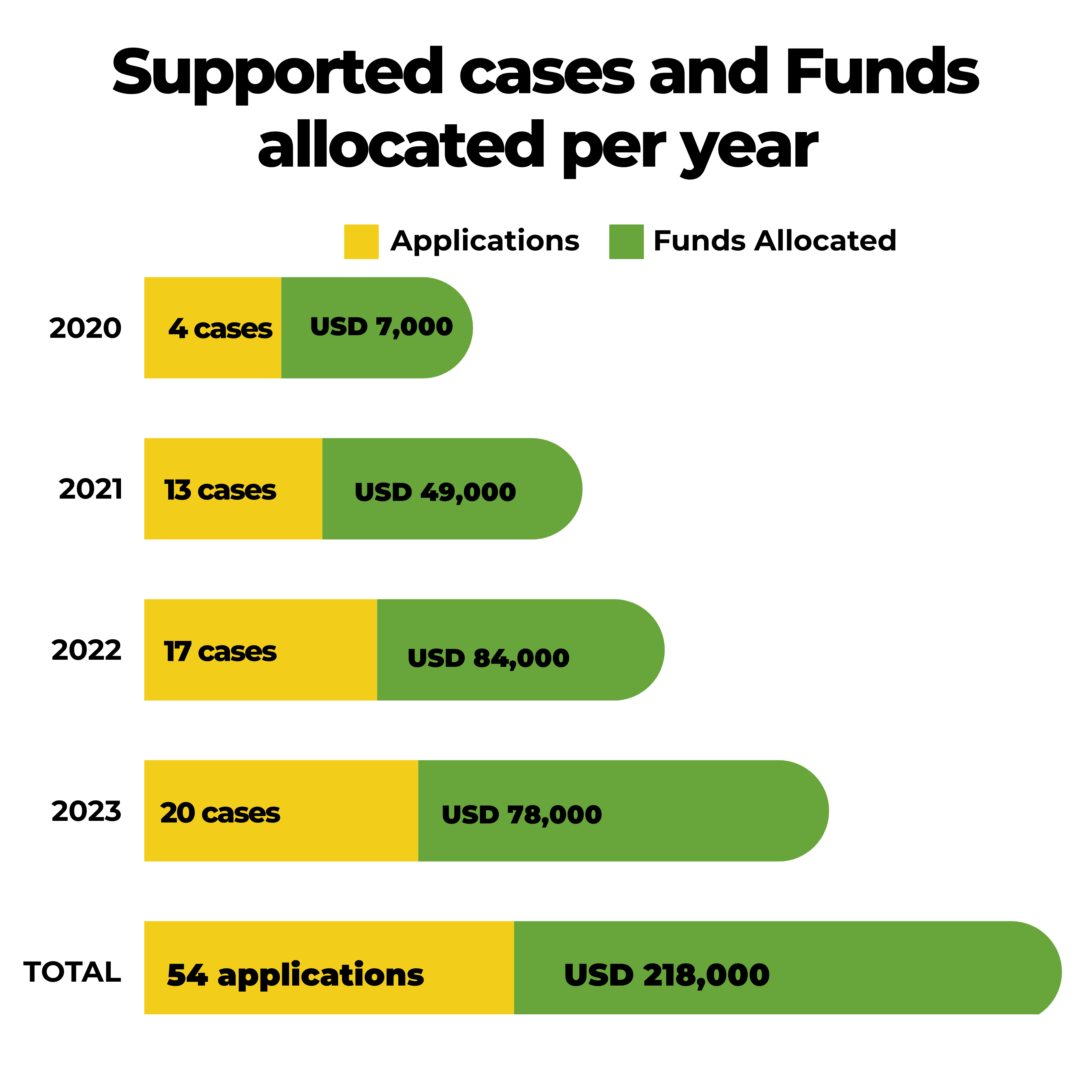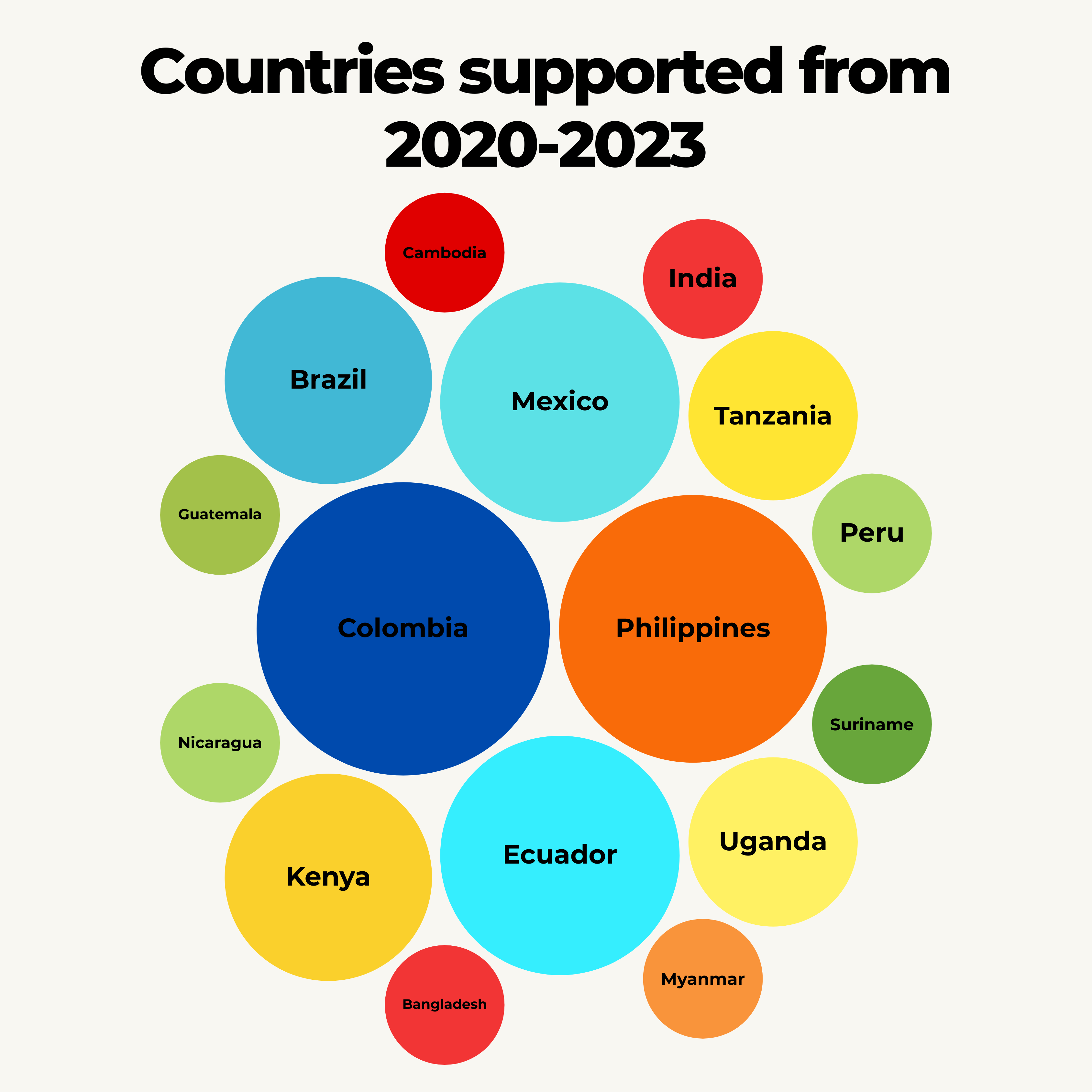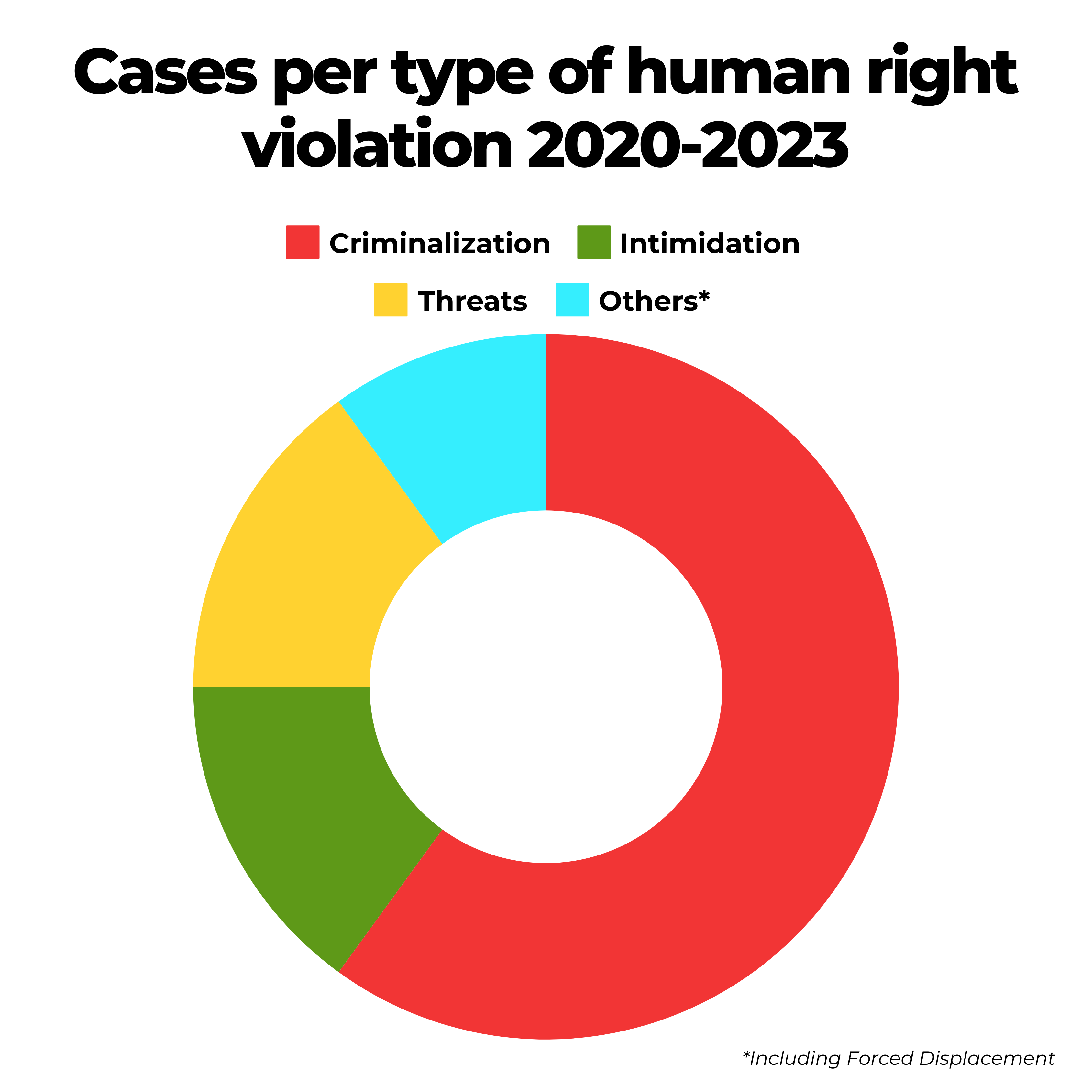
This Global Initiative is an effort led by Indigenous leaders and organizations to strengthen coordination, solidarity, and actions aiming to improve the situation of Indigenous Peoples. It aims to prevent, respond, reduce, and prevent acts of criminalization of, and violence and impunity against Indigenous Peoples. It aims to provide better protection and access to justice for actual and potential victims not only as individuals but as collectives or communities.
A part of the Global Initiative is the Legal Defense and Sanctuary Fund. The Fund is IPRI’s mechanism in providing emergency support for Indigenous leaders, human rights defenders and communities needing legal support and/or protection for security measures.

The Fund is open only to Indigenous Peoples (Indigenous leaders, Indigenous women and youth; Indigenous Peoples Human Rights Defenders (IPHRDs); members of Indigenous organizations, Indigenous institutions and communities) experiencing serious threats to their individual and /or collective rights.
Some examples of these threats are those particularly related to acts of criminalization: illegal detention, filing of trumped-up criminal charges, credible threats to life, unjust eviction or displacement or threats to do so, and gender-based violence by members of military or State forces.
The Fund will give priority to leaders and members of indigenous organizations and communities with the least access to financial resources.

The Fund can support a maximum of $US 4,000.00 per request.
In exceptional circumstances, higher amounts can be considered subject to the availability of funds.
Due to limited resources, IPRI may not be able to support all requests and reserves the right to prioritize what requests will be supported.

To apply for financial support click on the top button. For any further questions/clarifications, please don’t hesitate to reach out to us: LDSF@iprights.org.
- Applicant: Download, fill and send the application form (English, Spanish, French and Portuguese).
- IPRI shall acknowledge the request submitted and conduct verification and due diligence.
- IPRI will send an update on the status of the request within 10 working days from the day of the acknowledgement. The status of request may be:
- Fully approved
- Partially approved
- Further verification required
- Regret for inability to provide financial support

- To provide resources for legal support, and related assistance to Indigenous Peoples or organizations who are falsely accused or criminalized, or are facing legal sanctions because of their actions to exercise or defend their individual or collective rights;
- To provide resources for sanctuary to Indigenous Peoples who are facing serious threats to their personal security and wellbeing as a consequence of their human rights work.
- To respond to immediate and urgent needs of Indigenous Peoples or their organizations and/or their families and or their communities to address serious threats to their rights and or to mitigate the consequences of the violations of their rights.
- To support and strengthen Indigenous Peoples’ traditional justice and governance systems that protect and support those who suffer from criminalization.
The Fund shall complement other actions done by other persons or organizations in providing support and assistance for the promotion and protection of human rights of Indigenous Peoples against criminalization and impunity, and for access to justice.

The Fund is dedicated to providing essential support to ensure the protection and promotion of Indigenous Peoples' rights. It covers: legal support, sanctuary support and urgent needs.
The Fund can cover:
- Legal support and actions that aim to ensure the exercise or defense of Indigenous Peoples’ individual or collective rights are promoted and protected.
- Sanctuary support ensuring the safety and security of the applicant or partner. It may include facilities for homestay, access to equipment for security and protection measures, moving from a temporary location for safety and any other actions ensuring the safety and security of the applicant or partner.
(Note: The applicant should have exhausted all the available remedies and protection measures before requesting support for sanctuary. If not, an explaination should be provided on why no such exhaustion of local assistance was done.) - Measures that respond to immediate and urgent needs of Indigenous Peoples to address serious threats to their rights and/or to mitigate the consequences of the violations of their rights.
Protecting the Protectors: Supporting Indigenous Defenders-at-Risk



Stories of struggle and resilience
“Indigenous peoples across the globe are increasingly subjected to criminalization and violations of their individual and collective rights with impunity. Help put an end to this.”
Registered in the US as a 501(c)(3) nonprofit corporation (EIN: 86-1737122)



